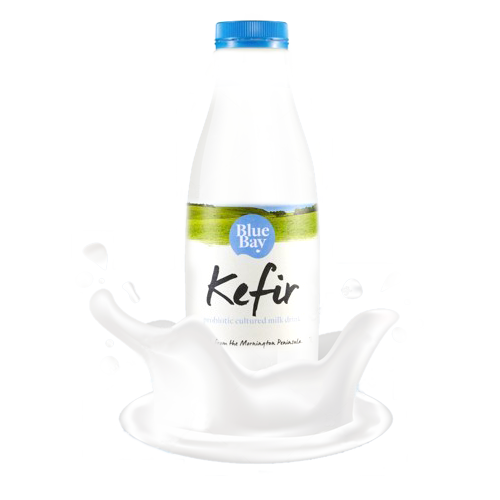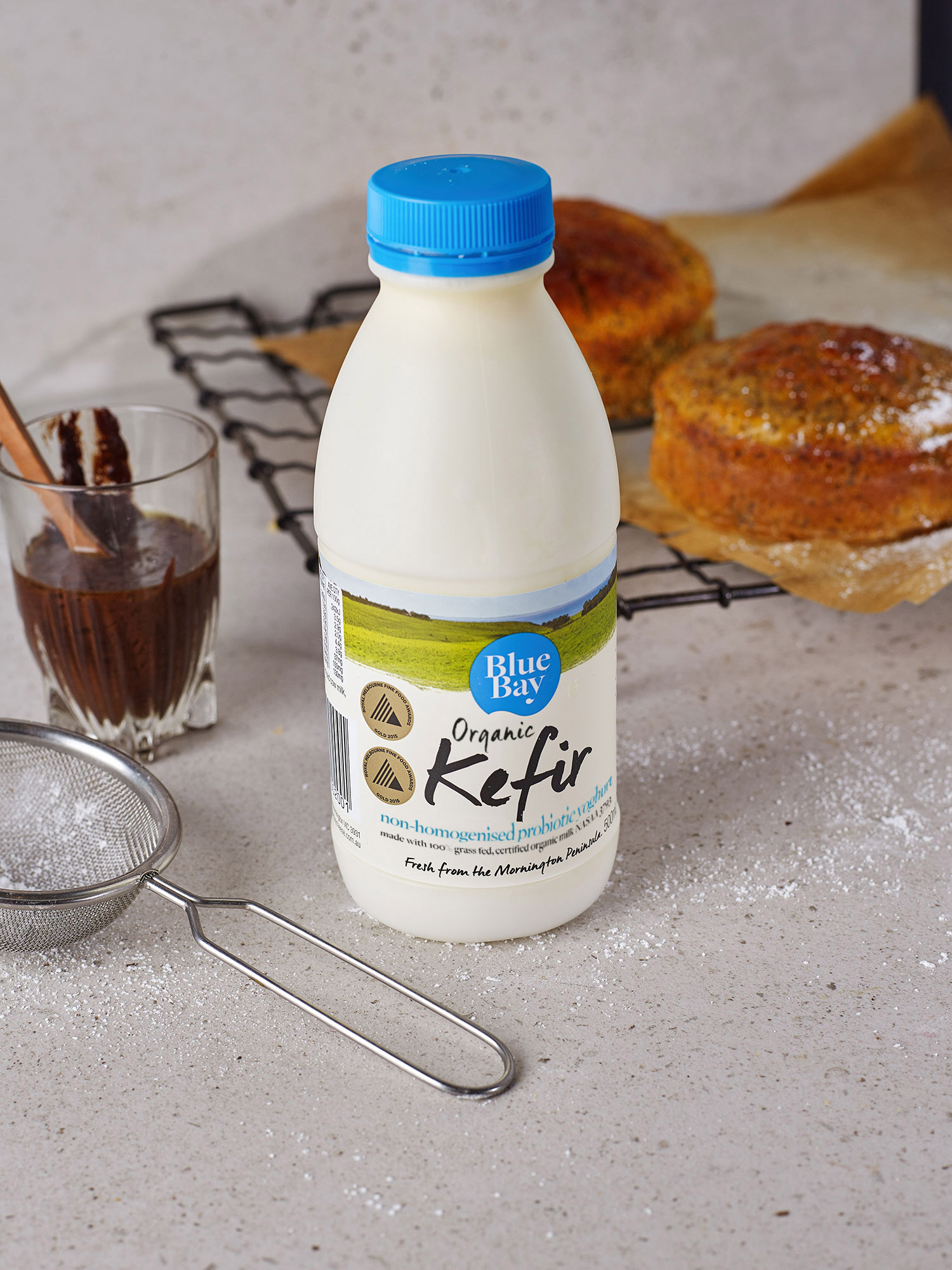Blue Bay Kefir is a traditionally fermented, non-homogenised probiotic yoghurt product that is an amazing source of probiotics. Blue Bay Kefir, from Mornington, Victoria is an Australian gold award-winning brand and is made from premium organic milk, has no added thickeners or preservatives and best of all it tastes divine!
The Taste
Blue Bay Kefir has the lovely dairy aroma of milk with a mild ‘tangy’ taste. Although slightly viscous it has a clean mouth feel and finishes smoothly. It has the length of flavour of the lightest curd cheese and a pleasing savoury sensation. When it hits the stomach it doesn’t cause the heaviness of having consumed milk (think drinking a milkshake or Big M). As kefir is a traditionally fermented, non-homogenised probiotic yoghurt product it just feels good.
Blue Bay’s Kefir Production
Blue Bay has brought kefir into the 21st century by applying traditional techniques to modern equipment and standards and by using some of the best organic milk in the country. To make it, Blue Bay’s team gently and slowly heat milk to 65C to kill potential pathogens while retaining fat structure and enzymes. The milk is never homogenised. A mix of 12 strains of beneficial live cultures – good bacteria that consume the lactose in the milk and turn it into lactic acid – are then added. The lactic acid gives the kefir its clean taste and makes the proteins in the milk change their structure to form a net or matrix that captures the liquid and other nutrients in a lovely smooth thick texture. It’s a thorough process that takes 16 hours.
Long Shelf Life
When the kefir is bottled the unhomogenised butterfat rises to the top and solidifies, forming an airtight plug that stops the kefir from oxidising. It also protects flavour, nutritional value and extends shelf life. Blue Bay Kefir – with no added thickeners or preservatives – can last a good six weeks on the fridge shelf.
Promoting Gut Health
Kefir contains probiotics capable of colonising the gut where they improve cholesterol metabolism and promote a healthier immune system. They also help balance good and bad bacteria and are effective in managing gastroenteritis. There is evidence to show that kefir consumption has been associated with improvements in people suffering from diabetes, irritable bowel syndrome, allergies and autoimmune disorders.
Cooking with Kefir
While kefir is great to consume on its own daily, cooking and preparing food with kefir is also versatile and easy. Just store it upright in the fridge so the fat cap stays in place. Because it is acidic it can be used in recipes where cultured buttermilk is called for. The lactic acid activates baking soda, making for fluffy pancakes.
It is perfect blended with ice and fruit – and perhaps a little honey – to make delicious yogurt-based desserts. Because it has a subtle savoury flavour it can also be folded through with some olive oil, salt and a little garlic and used as a side dish for salads and grilled meats, such as lamb.



